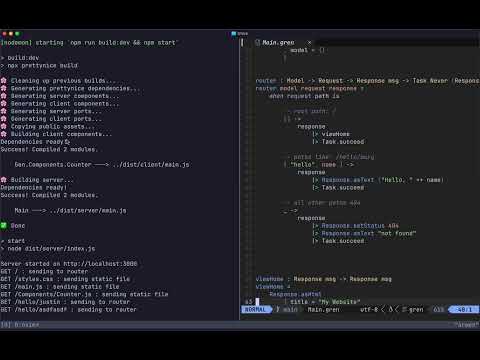
Administered by:
Server stats:
264active users
shakedown.social: About · Status · Profiles directory · Privacy policy
Mastodon: About · Get the app · Keyboard shortcuts · View source code · v4.4.2
#functionalprogramming
Andy is convinced that functional programming isn’t boring. Listen to find out if he’s right!
Added a new convenience transducer for clipping and binning values, e.g. as preparation step for histogram generation whilst working in the REPL. New release forthcoming. A small code example attached (actually taken from the doc string of the new `binned()` transducer).
Today's Gren Twig is about Pretty Nice, my full stack web framework for Gren:
https://www.youtube.com/watch?v=gZCOZ9tuArU&list=PLflA5Q354D42Zxi6KiLmNVNzQHINQ51U-&index=21
Mastodon is the best way to keep up with what's happening.
Follow anyone across the fediverse and see it all in chronological order. No algorithms, ads, or clickbait in sight.
Create accountLogin